Water Chillers
Product Details:
- Purifying Function Yes
- Power 220 Volt (v)
- Valve Type Simple
- Installation Type Cabinet Type
- Water Source Normal
- Dimension (L*W*H) 4feet*2**3feet Foot (ft)
- Voltage 220 Volt (v)
- Click to View more
Water Chillers Price And Quantity
- 1 Piece
- 100000.00 INR/Piece
Water Chillers Product Specifications
- 220 Volt (v)
- 4feet*2**3feet Foot (ft)
- 220 Volt (v)
- Simple
- Normal
- 12month
- Cabinet Type
- 50kg Kilograms (kg)
- Yes
Water Chillers Trade Information
- Noida India
- Cash on Delivery (COD) Letter of Credit (L/C) Delivery Point (DP) Letter of Credit at Sight (Sight L/C) Western Union Cash Against Delivery (CAD) Cash Advance (CA) Telegraphic Transfer (T/T) Cash in Advance (CID) Cheque
- 2 Piece Per Week
- 1 Week
- Yes
- Australia Western Europe South America Central America Eastern Europe Middle East Asia Africa
- All India
Product Description
Effective refrigeration devices called water chillers are used to cool water for a variety of applications. They provide accurate temperature regulation, energy efficiency, and small size. They may be adapted to fulfil unique cooling needs thanks to scalable and modular setups. HVAC systems, food and beverage, pharmaceuticals, and other industries all use water chillers. They provide optimum performance and temperature stability by offering dependable and constant cooling. Water chillers can also be green because they use eco-friendly refrigerants to reduce their carbon footprint. Water chillers are a crucial part of cooling systems because of their adaptability, energy efficiency, and dependability in supporting a variety of industrial and commercial activities.
The following are some characteristics and advantages of water chillers:
1. Cooling Capacity: Water chillers are made to efficiently cool a variety of applications, from large-scale industrial operations to small-scale industrial activities. They can support heavy cooling loads and keep a steady temperature.
2. Energy Efficiency: To reduce energy usage, modern water chillers use cutting-edge technologies including variable speed compressors and intelligent controls. This lowers the environmental effect and results in financial savings.
3. Water chillers provide precise temperature control, making it possible for users to select and maintain particular temperature ranges. This is essential for processes used in laboratories, hospitals, and manufacturing facilities that need stringent temperature stability.
4. Water chillers are available in tiny sizes and can be installed in small locations thanks to their space-saving design. They can thus maintain effective cooling capacities while being suited for installations with little area.
5. Low Noise Operation: To reduce operating noise levels, many water chillers are equipped with noise-canceling functions. This is crucial in places that are sensitive to noise, such offices, hospitals, and public buildings.
6. Water chillers can be adjusted up or down to fulfil different cooling requirements because to their scalability and modularity. They can also be incorporated into systems that are modular, making it simple to expand or customise them in response to changing requirements.
7. Reliable and Durable: To ensure long-term operation, water chillers are created with reliable construction and durable parts. Their lifespan and performance are extended with regular maintenance and servicing.
8.Water chillers can be designed with a variety of refrigeration technologies, including air-cooled and water-cooled alternatives. This gives you the freedom to select the best configuration based on the particular application and environmental factors.
9.Water chillers are used in a wide range of industries, including manufacturing, data centres, food and beverage processing, pharmaceuticals, and chemical processing. They can maintain ideal ambient conditions, regulate process temperatures, and cool equipment.
10. Environmental Benefits: Water chillers that use eco-friendly refrigerants help reduce carbon emissions and support sustainability objectives. They assist in reducing greenhouse gas emissions and observing environmental laws.
In conclusion, water chillers provide accurate and effective cooling, energy economy, a small footprint, and dependable operation. They are useful in a variety of applications due to their adaptability since they offer controlled cooling to support industrial operations, comfort cooling, and environmental sustainability.

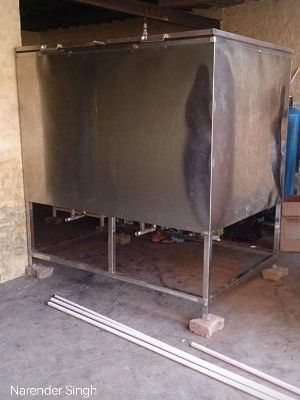
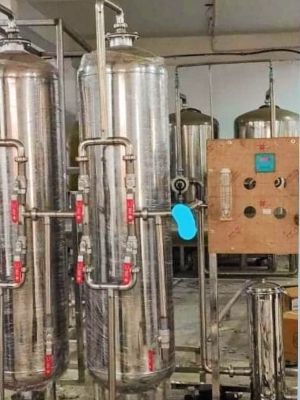
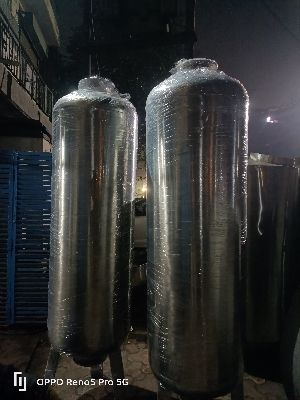
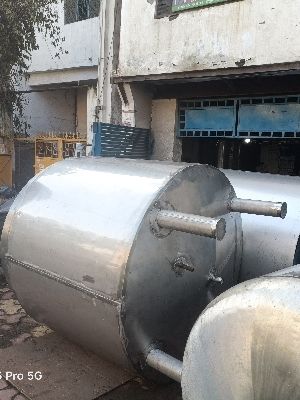
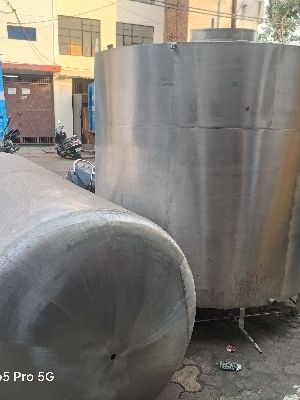


 Send Inquiry
Send Inquiry Send SMS
Send SMS Call Me Free
Call Me Free